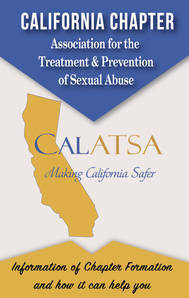JSORRAT-II: The Juvenile Sexual Offense Recidivism Risk Assessment Tool - II
Summary
This 7 hour course describes use of a static risk assessment based on historical factors for juveniles who sexually offend. The risk instrument is the Juvenile Sexual Offense Recidivism Risk Assessment Tool-II (JSORRAT- II). This instrument has been validated in Utah and Iowa on a statewide basis and in follow-up studies of clinical populations. It provides risk estimates for sexual offending for these youth obtained from the probation file. It is a “best practices” instrument for this population and was the mandated risk assessment tool for referrals to the Department of Juvenile Justice and by the Chief Probation Officers of California. The course is a PowerPoint presentation with case examples and worksheets. Participants are required to participate in discussions and score case files. Those who successfully score a test case will receive a certificate as a certified scorer.
Presented By
Krys Hunter, PsyD
Kyrst Hunter was the Sexual Behavior Treatment Program (SBTP) Coordinator at the CDCR-DJJ program, and operates KD Hunter Forensic Assessment and Psychological Services. She is also a trainer for the STATIC-99R and J-SORRAT-II.
Kyrst Hunter was the Sexual Behavior Treatment Program (SBTP) Coordinator at the CDCR-DJJ program, and operates KD Hunter Forensic Assessment and Psychological Services. She is also a trainer for the STATIC-99R and J-SORRAT-II.
Chris Miller, DPO-II
Chris Miller is a probation officer with Napa County who supervises a caseload of JwSO youth. He is a trainer for the J-SORRAT-II.
Chris Miller is a probation officer with Napa County who supervises a caseload of JwSO youth. He is a trainer for the J-SORRAT-II.

Norbert Ralph, PhD, MPH
Norbert is a clinical psychologist in private practice. He is also a psychiatric epidemiologist and neuropsychologist who has authored over 40 articles, book chapters, blogs, or books. His recent research as focused on the characteristics and treatment of juveniles who sexually offended. For over two decades he's been involved with the assessment and treatment of this population. He was formerly Associate Clinical Professor in Family Practice, University of California School of Medicine at Davis, and Lecturer and Research Biostatistician in the Program in Maternal and Child Health, School of Public Health, at the University of California, Berkeley. He is a Trainer for Aggression Replacement Training, through the California Institute for Mental Health. Norbert is certified as a practitioner for Moral Reconation Therapy, as well as a trainer for the Juvenile Sexual Offense Recidivism Risk Assessment Tool - II. He is also a member of the Quality Management Committee, AllCare Independent Physicians Association.
Norbert is a clinical psychologist in private practice. He is also a psychiatric epidemiologist and neuropsychologist who has authored over 40 articles, book chapters, blogs, or books. His recent research as focused on the characteristics and treatment of juveniles who sexually offended. For over two decades he's been involved with the assessment and treatment of this population. He was formerly Associate Clinical Professor in Family Practice, University of California School of Medicine at Davis, and Lecturer and Research Biostatistician in the Program in Maternal and Child Health, School of Public Health, at the University of California, Berkeley. He is a Trainer for Aggression Replacement Training, through the California Institute for Mental Health. Norbert is certified as a practitioner for Moral Reconation Therapy, as well as a trainer for the Juvenile Sexual Offense Recidivism Risk Assessment Tool - II. He is also a member of the Quality Management Committee, AllCare Independent Physicians Association.
Learning Objectives
- List the states that have validated the JSORRAT-II
- Describe how the JSORRAT-II can be useful
- Identify scoring criteria for 12 items
CE Credit |
Intended Audience |
Experience Level |
|
7 CE Available for CPA, BBS, CJER
Additional Continuing Education Information |
This training is intended for mental health professionals.
|
This training is appropriate for all level clinicians.
|


